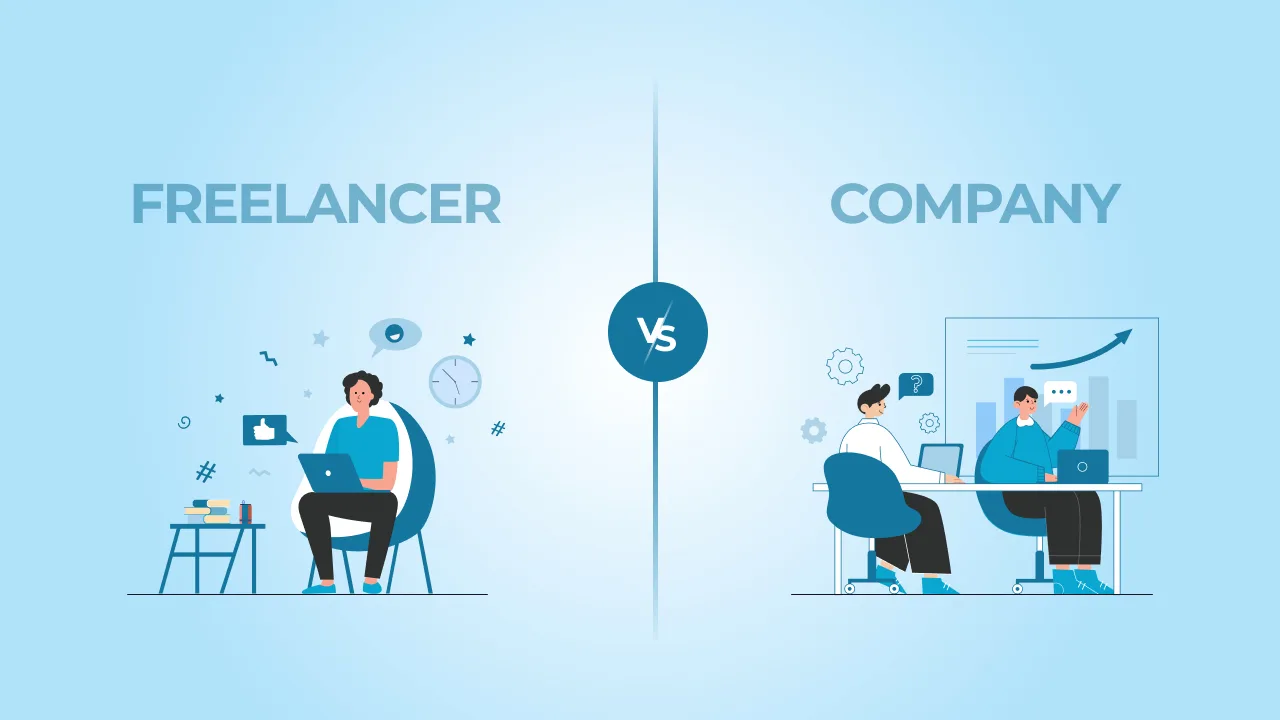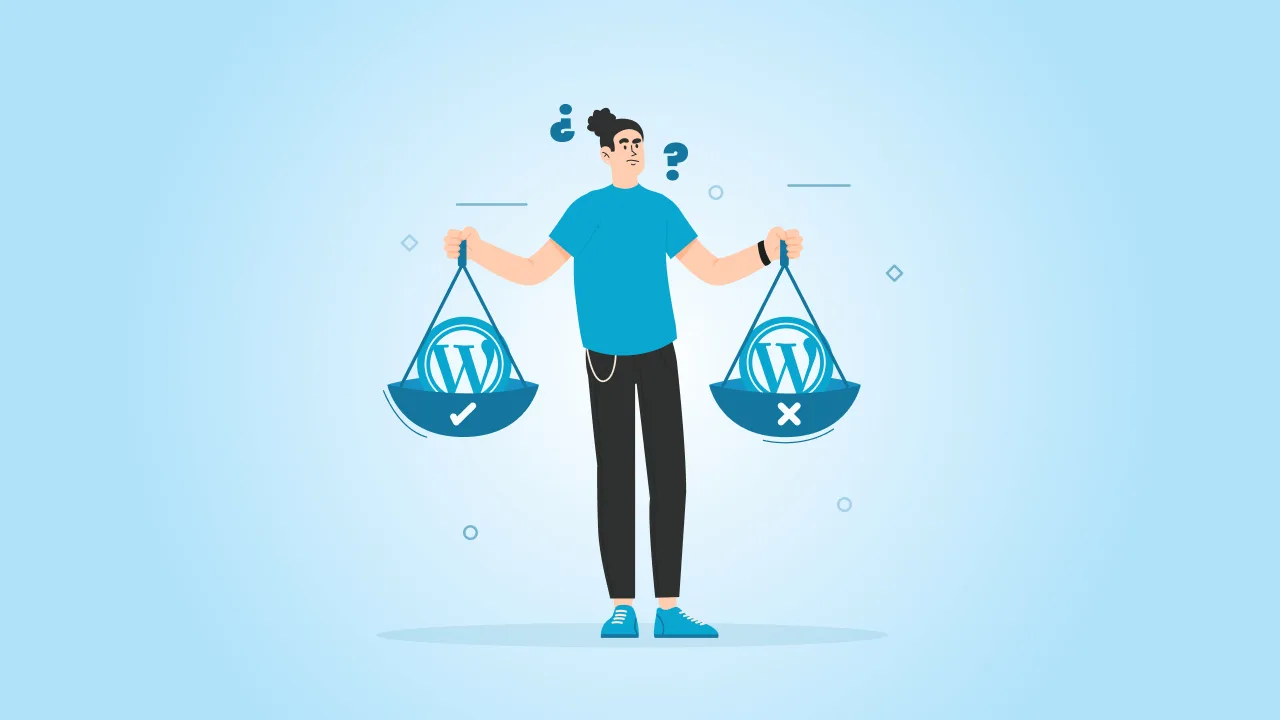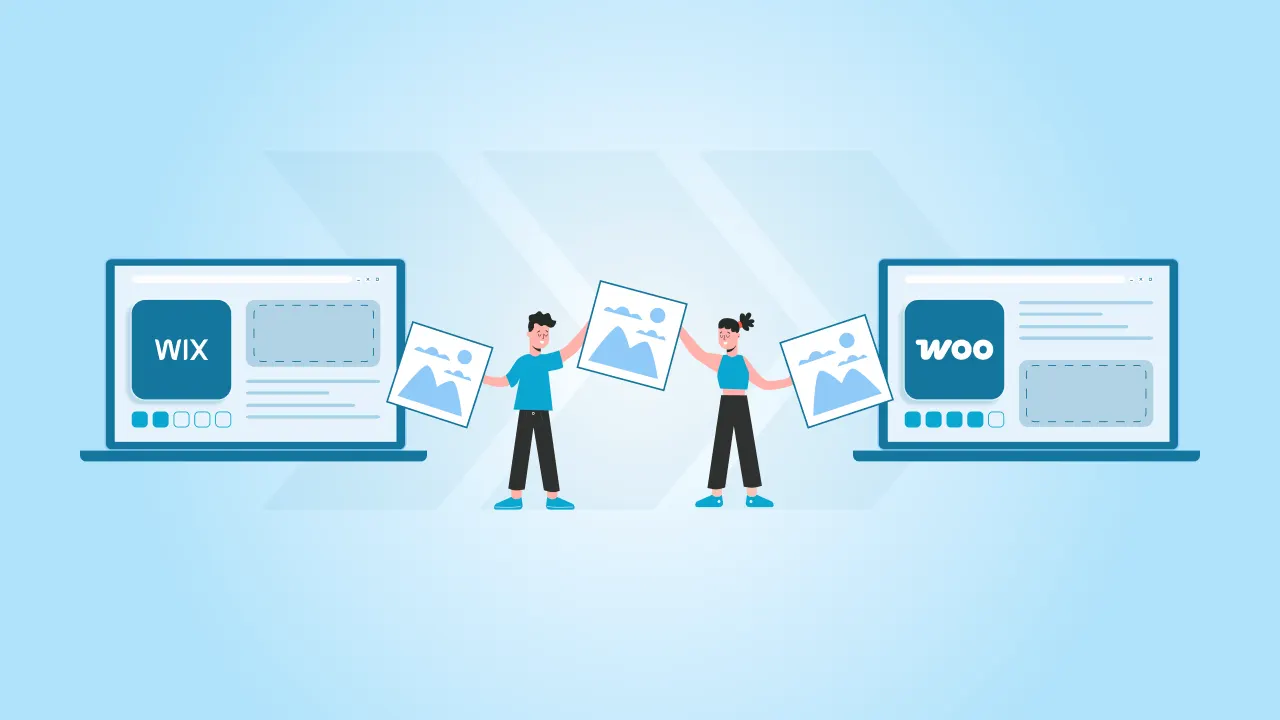Custom WordPress development offers a powerful way to elevate your website beyond the limitations of pre-built themes and plugins. While WordPress’s flexibility and extensive ecosystem make it a popular choice for businesses of all sizes, truly standing out in the digital landscape often requires a more tailored approach.
This article will explore how custom WordPress development can transform your website, enhancing its functionality, performance, and user experience to align perfectly with your unique business goals and brand identity.
What is Custom WordPress Development?
Custom WordPress development refers to the process of creating bespoke solutions for WordPress websites, tailored specifically to meet unique business needs and objectives. Unlike using pre-built themes or off-the-shelf plugins, custom development involves writing original code to craft personalized features, functionalities, and designs.
This approach allows developers to:
- Create unique features: Custom development enables the creation of specialized functionalities that may not be available through existing plugins or themes. This could include complex e-commerce systems, custom user portals, or industry-specific tools.
- Optimize performance: By building only what’s necessary, custom development can result in leaner, faster-loading websites without the bloat often associated with multipurpose themes or plugins.
- Ensure scalability: Custom solutions can be designed with future growth in mind, making it easier to add new features or handle increased traffic as your business expands.
- Maintain brand consistency: Custom development allows for pixel-perfect design implementation, ensuring your website aligns perfectly with your brand guidelines and stands out from competitors.
- Enhance security: By avoiding widely used templates and plugins, custom development can reduce vulnerabilities associated with popular, publicly available code.
In contrast, pre-built themes and templates, while convenient and cost-effective for some businesses, come with limitations:
- Limited customization options
- Potential performance issues due to unnecessary features
- Difficulty in implementing unique functionalities
- Risk of looking similar to other websites using the same theme
- Dependency on third-party developers for updates and support
Custom WordPress development overcomes these limitations by providing a blank canvas to create a website that truly reflects your business’s unique identity and meets its specific needs.
Benefits of Custom WordPress Development
- Future-proof your website: Custom development allows for a modular architecture that can easily accommodate new features or expanded functionality as your business grows.
- Handle increased traffic: Custom-built websites can be optimized to handle sudden spikes in traffic, ensuring your site remains responsive during high-demand periods or viral marketing campaigns.
- Adapt to market changes: Quickly implement new technologies or adapt to shifting market trends without overhauling your entire website.
- Personalized user journeys: Create tailored experiences for different user segments, improving engagement and conversion rates.
- Intuitive navigation: Design custom navigation structures that make sense for your specific content and user needs, rather than forcing your site into a pre-built theme’s layout.
- Advanced interactivity: Implement features like dynamic content loading, custom animations, or interactive tools that enhance user engagement and provide value.
- Accessibility focus: Build accessibility features directly into the design, ensuring your site is usable by all visitors, including those with disabilities.
- Custom URL structures: Create SEO-friendly URLs that accurately reflect your content hierarchy and improve crawlability.
- Optimized page speed: Develop a lean, efficient codebase that loads quickly, a crucial factor in search engine rankings and user experience.
- Advanced schema markup: Implement detailed, custom schema markup to help search engines better understand and display your content in search results.
- Content optimization: Build custom content management tools that encourage SEO best practices, such as metadata management and internal linking features.
- Unique visual language: Develop a distinct look and feel that sets you apart from competitors using common themes or templates.
- Consistent brand experience: Ensure your brand identity is reflected consistently across all aspects of your site, from micro-interactions to overall layout.
- Custom multimedia integration: Create unique ways to showcase your products, services, or content that align perfectly with your brand narrative.
- Tailored security measures: Implement security features specific to your business needs, such as custom user roles, advanced authentication methods, or industry-specific data protection measures.
- Regular security audits: With full access to your codebase, conduct thorough security audits and quickly address any vulnerabilities.
- Controlled updates: Manage updates on your own schedule, avoiding the risks associated with automatic theme or plugin updates.
- Seamless system connections: Create custom integrations with your existing business systems, such as inventory management, customer relationship management (CRM), or enterprise resource planning (ERP) software.
- Custom APIs: Develop APIs that allow for efficient data exchange between your website and third-party services or mobile applications.
- Unified data management: Create a central hub for all your business data, improving efficiency and decision-making capabilities.
- Efficient code: Write clean, efficient code that minimizes server load and improves overall site performance.
- Custom caching solutions: Implement advanced caching strategies tailored to your specific content and user patterns.
- Optimized media handling: Create custom solutions for serving images and videos, ensuring fast load times without sacrificing quality.
- Industry-specific tools: Develop features that address the unique needs of your industry, such as specialized calculators, configurators, or data visualization tools.
- Custom e-commerce solutions: Create unique shopping experiences, product customization tools, or subscription management systems.
- Advanced search capabilities: Implement powerful, custom search functionalities that help users find exactly what they’re looking for.
- Industry-specific compliance: Ensure your website meets regulations specific to your industry, such as HIPAA for healthcare or PCI DSS for e-commerce.
- Ongoing compliance management: Easily update your site to meet new regulatory requirements as they emerge.
- Comprehensive accessibility: Go beyond basic accessibility standards to create truly inclusive user experiences for all visitors.
- Reduced plugin dependency: Minimize ongoing costs associated with premium plugin subscriptions by building necessary functionality directly into your site.
- Efficient updates: Streamline the update process, reducing the time and resources needed to keep your site current and secure.
- Scalable infrastructure: Invest in a robust foundation that grows with your business, avoiding costly rebuilds or migrations down the line.
Scalability and flexibility:
Enhanced user experience (UX) and user interface (UI) design:
Improved search engine optimization (SEO):
Stronger brand identity:
Greater security and control:
Integration capabilities:
Performance optimization:
Unique functionalities:
Compliance and accessibility:
Long-term cost-effectiveness:
Transform your ideas into reality with top-tier WordPress developers.
WordPress Website Template Development vs Custom WordPress Development
Building a successful website often hinges on the choice between a pre-designed WordPress template and custom development. Each option brings distinct advantages and drawbacks. Let’s explore the key differences to help you make an informed decision.
| Feature | WordPress Website Template | Custom WordPress Development |
|---|---|---|
| Design | Pre-designed layouts | Unique and customizable design |
| Setup | Quick and easy | Requires development expertise |
| Cost | Cost-effective | Higher cost |
| Customization | Limited customization | Full customization |
| Performance | Potential conflicts | Optimized performance |
| Scalability | Limited scalability | Highly scalable |
| Ideal for | Simple websites, small budgets | Complex websites, strong online presence |
Additional Considerations
- SEO: Both templates and custom development can be optimized for search engines, but custom development often offers more control over SEO elements.
- Security: Regular updates and security measures are essential for both options, but custom development can provide more granular control over security features.
- Maintenance: Templates generally require less maintenance, while custom development may require ongoing updates and support.
What’s the Difference Between WordPress.org and WordPress.com?
Let’s understand the difference with a simple analogy. Imagine you are building a house.
WordPress.org is similar to buying a plot of land and building your house from scratch. You have complete control over everything, but you’re responsible for everything too. You need to hire builders, plumbers, electricians, etc.
WordPress.com is like renting an apartment. The landlord (WordPress.com) handles the building, repairs, and maintenance. You can decorate it, but you have limits on what you can change.
| Feature | WordPress.org | WordPress.com |
|---|---|---|
| Control | You control everything | Limited control |
| Hosting | You find your own hosting | They handle hosting |
| Customization | Highly customizable | Limited customization |
| Monetization | You control monetization | Limited or no monetization |
| Technical Expertise | More needed | Less needed |
| Cost | Free software, pay for hosting | Free plan with limitations, paid plans available |
Cost Considerations for Custom WordPress Development
When considering custom WordPress development, the cost is undoubtedly an important factor for businesses of all sizes. While custom solutions typically require a higher initial investment compared to pre-built themes or templates, it’s essential to consider the long-term value and return on investment. Let’s explore the key factors that influence the cost of custom WordPress development:
Project Complexity:
- Feature set: The number and complexity of custom features directly impact development time and cost.
- Design intricacy: Unique, complex designs require more time to implement accurately.
- Integration requirements: Connecting with external systems or APIs adds to the project scope.
Developer Experience and Location:
- Skill level: Experienced developers generally command higher rates but often deliver higher quality work more efficiently.
- Geographic location: Developer rates can vary significantly based on their location (e.g., North America vs. Eastern Europe or Southeast Asia).
- Agency vs. freelancer: Agencies may have higher rates but offer a broader skill set and more reliable support.
Project Scale:
- Website size: The number of pages and content volume affect development time.
- User roles and permissions: Complex user management systems increase development complexity.
- E-commerce functionality: Online stores typically require more extensive development work.
Performance Requirements:
- Expected traffic: High-traffic sites need more robust infrastructure and optimization.
- Load time targets: Achieving very fast load times may require additional optimization work.
Security Needs:
- Industry-specific compliance: Implementing strict security measures for sensitive data increases costs.
- Custom security features: Developing tailored security solutions adds to the project scope.
Additional Services:
- Ongoing maintenance: Regular updates, security patches, and performance monitoring.
- Content creation: Copywriting, image sourcing, and multimedia production.
- SEO services: On-page optimization, content strategy, and technical SEO implementation.
- Training: Custom documentation and team training for site management.
Timeline:
- Urgent projects: Faster turnaround times may incur premium rates.
- Phased development: Breaking the project into phases can spread costs over time.
Cost to Develop a Custom WordPress Website
While it’s challenging to provide an exact figure without specific project details, custom WordPress development typically ranges from $5,000 to $100,000+, depending on the factors mentioned above. Small business websites with moderate customization might fall in the $5,000 to $20,000 range, while complex e-commerce sites or large corporate portals could exceed $50,000 or even $100,000.
You Can Also Read: Comprehensive Guide to WordPress Maintenance Costs
Value Proposition: Despite the higher initial cost, custom WordPress development often proves more cost-effective in the long run:
- Reduced ongoing expenses: Fewer plugin licenses and lower maintenance costs.
- Improved performance: Better user experience leading to higher conversion rates.
- Scalability: Avoid costly rebuilds as your business grows.
- Competitive advantage: Stand out in the market with unique features and design.
- Efficiency: Streamlined processes and integrations save time and resources.
When evaluating costs, consider the total cost of ownership over several years, including initial development, ongoing maintenance, and potential lost opportunities from an underperforming website. Custom development is an investment in your digital presence that can pay significant dividends in terms of user engagement, brand perception, and business growth.
To get an accurate estimate for your project, it’s best to consult with several reputable WordPress development agencies or freelancers. They can provide detailed quotes based on your specific requirements and help you understand the value proposition for your unique business needs.
Your website’s next chapter starts here. Elevate it with cmsMinds’ custom WordPress solutions.
How to Develop a Custom WordPress Website
Custom WordPress development is a powerful way to create a unique, high-performing website tailored to your specific business needs. By following a structured approach, you can transform your vision into a reality that sets you apart from the competition. Here’s a step-by-step guide to kickstart your custom WordPress project:
Define Your Website Goals and Target Audience:
- Identify your primary business objectives (e.g., lead generation, sales, brand awareness)
- Create detailed user personas representing your target audience
- List the key problems your website should solve for your users
- Determine success metrics for your website (e.g., conversion rates, engagement metrics)
Identify Essential Features and Functionalities:
- List must-have features based on your business needs and user expectations
- Prioritize features into “essential,” “nice-to-have,” and “future development” categories
- Consider unique functionalities that could set you apart from competitors
- Evaluate potential integrations with existing business systems (CRM, ERP, etc.)
Conduct a Content Audit and Plan:
- Assess your existing content (if applicable)
- Outline the content structure for your new site
- Identify gaps in your content and plan for creation or migration
- Consider your content management needs and any special requirements
Create a Design Brief:
- Collect design inspiration and examples of sites you admire
- Define your brand guidelines (colors, typography, imagery style)
- Outline any specific UX/UI requirements or preferences
- Consider responsive design needs for various devices
Set a Clear Budget and Project Timeline:
- Determine your overall budget for the project
- Allocate funds for different aspects (design, development, content, marketing)
- Set a realistic timeline for the project, including buffer for revisions
- Consider phased development if budget or time constraints are tight
Research and Select a WordPress Development Agency:
- Look for agencies with proven experience in custom WordPress development
- Review their portfolio and case studies relevant to your industry
- Check client testimonials and reviews
- Ensure they offer post-launch support and maintenance services
- Consider their communication style and project management approach
Prepare a Detailed Project Brief:
- Compile all the information from steps 1-5 into a comprehensive document
- Include any specific technical requirements or preferences
- Outline your expectations for project management and communication
Request and Evaluate Proposals:
- Reach out to selected agencies with your project brief
- Compare proposals based on approach, timeline, cost, and value-added services
- Ask for clarifications or revisions as needed
- Consider scheduling calls or meetings with top candidates
Make Your Selection and Plan the Kickoff:
- Choose the agency that best fits your needs and budget
- Negotiate and finalize the contract, including clear deliverables and milestones
- Schedule a project kickoff meeting to align on goals, timelines, and expectations
- Establish communication channels and reporting processes
Prepare for Development:
- Gather all necessary assets (logos, brand guidelines, content)
- Set up access to any required accounts or systems
- Assign a point person from your team to liaise with the development agency
- Plan for internal reviews and feedback sessions throughout the process
Post-Launch Planning:
- Discuss the launch process and any potential downtime
- Plan for immediate post-launch monitoring and bug fixes
- Set up analytics and tracking tools
- Schedule a post-launch review to address any issues and plan for future enhancements
While custom development requires more upfront planning and investment, the results can significantly impact your online presence and business success. A custom WordPress site is not just a digital brochure—it’s a powerful tool that can drive your business forward, adapt to changing needs, and provide a solid foundation for your digital strategy.
Ready to transform your online presence? Take the first step towards a custom WordPress solution that works for you:
- Assess your current website: Identify pain points and areas for improvement.
- Define your goals: Clarify what you want your new website to achieve.
- Reach out to experts: Contact experienced WordPress developers to discuss your project.
Don’t let a generic website hold your business back. Invest in a custom WordPress solution that can grow with your business and help you stand out in the digital landscape.
Contact us today for a free consultation and discover how custom WordPress development can elevate your online presence and drive your business forward. Let’s build something extraordinary together.





